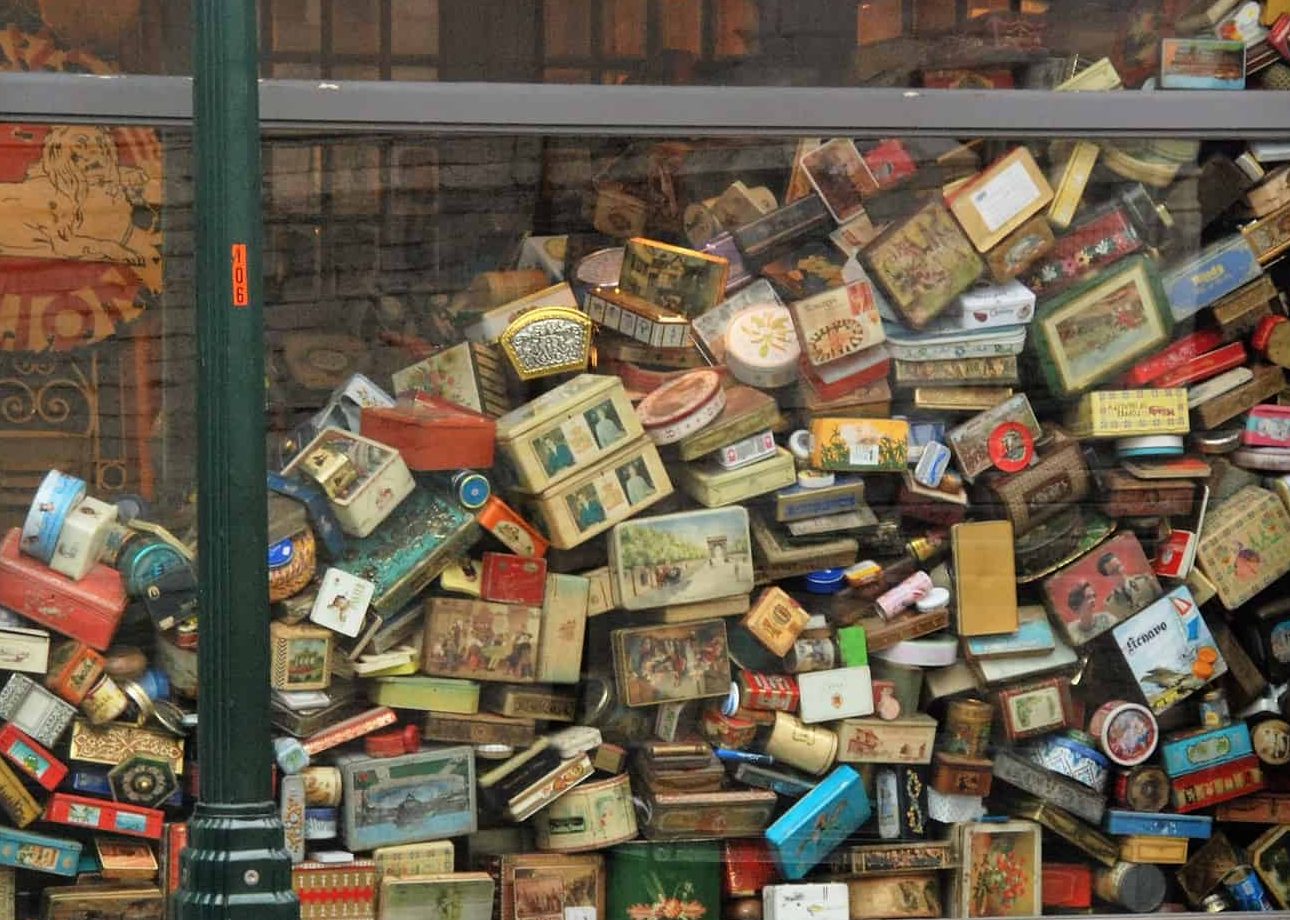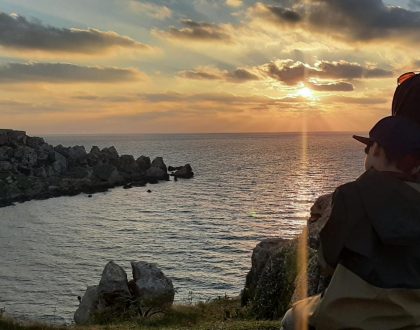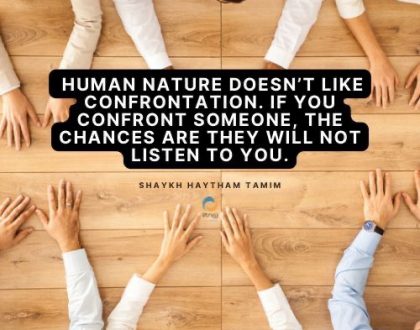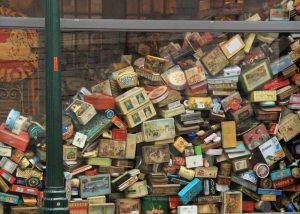A letter to my friend. Part 3: De-clutter your heart

by Abu Shama
Look after your heart
Look after your Dameer (heart) and your intention. Purify your heart, clean it and declutter it. Untie the knots in your heart. Make your heart sound until it becomes pure, soft and free.
How do you declutter the heart?
Clearing the space in the heart is like clearing space on your hard drive. What do you do when the hard drive of your phone or laptop is filling up?
You start sifting through, you store it elsewhere or you delete and create the space. Similarly, our heart is full of clutter. First, collect your clutter and then sort it in 3 easy steps.
- What is good, keep.
- What is not required, create space by giving it away.
- And what is foul, you need to get rid of it. Clean your heart from anything that causes the displeasure of Allah.
Hearts become rusty like iron
Look after your heart, look after your intention and polish your heart regularly. Abdullah ibn Umar narrated that the Messenger of Allah (ﷺ) said:
“Indeed the hearts rust just as iron does.” The Companions (radiyallahu anhum) asked: “What is its polish?” The Messenger of Allah (ﷺ) replied: “Abundant remembrance of death and recitation of the Qur’an.” [Shu’abul Iman]
In other narrations, dhikr (remembrance) of Allah, istagfar are mentioned as being a polish for the heart. All of these will purify the heart.
Heart: Pure and empty
We can understand why we need a pure heart. Allah says in the Qur’an:
“The Day whereon neither wealth nor sons will avail, except for him who comes to Allah with a pure heart.” [Al-Shu’ara: 26: 88-89]
But as for it being empty and free, this is to do with attachment. If you declutter your heart, but do not also address the attachment to clutter, sooner or later, you will return back to clutter. To be free, you need to free yourself to the attachment of things.
Look at the life of the Messenger of Allah (ﷺ), what did he have in his blessed house?
His house was barely furnished by any standards yet his heart was full of contentment. He lived a free man without shackles and attachments to things and he gave like a rich person without the fear of poverty. His heart was empty of everything except Allah.
Ata’illah has captured this in his Hikam:
“How can the heart be illumined while the forms of creatures are reflected in its mirror? Or how can it journey to Allah while shackled by its passions?” [Hikam 13]
How can your heart shine, whilst the Dunya reflect in the mirror of your heart?
When you look in a mirror and you see your reflection, there is a very simple explanation for that. It is because you are standing in front of the mirror. Similarly, the heart is like a mirror, when you look within your heart and see the Dunya being reflected, it is because the Dunya is standing in front of the mirror of your heart. Ata’illah also said:
“There are lights that are allowed to arrive [al-wusul] and lights that are allowed to enter [addukhul].” [Hikam 204]
“Sometimes lights come upon you and find the heart stuffed with forms of created things [suwaru’l-athar]; so they go back from whence they descended. ” [Hikam 205]
Allah is An-Nur (The Light of the Heavens and the Earth), His light is always manifesting, but what often happens is that the light arrives at our hearts but it is prevented from entering due to things. It is too full and there is no room for light to come through. If you are expecting a reward from Allah, you need to clear the space for the reward.
So make your heart free from the attachment of the Dunya. It’s not necessarily about how much you have or have not, but it is about your attachment to the things. As Imam Ali said:
“Detachment is not that you should own nothing, but that nothing should own you.”
You need the Dunya, like a ship needs seawater to travel. The problem arises when the seawater enters the ship, it runs the risk of sinking. Similarly, do not allow the Dunya to enter your heart. Keep it at arm’s length, use it, work with it but do not become consumed by it.
Allah looks at your heart
You are not away from Allah for even a blink of an eye, all the time, Allah is Ar-Raqeeb (The Watchful), He is watching, He is witnessing you. Imam Al-Ghazali said:
“Allah observes your entire being, no thought, moment, stillness, step or movement of yours escapes His regard whether in the company of others or in the solitude of yourself, you are ever in His Presence. In both the hidden and manifest dominions, nothing that is still is still, and nothing that moves, moves, but the Compeller of the Heavens and Earth is aware of it.” [i]
The Messenger of Allah (ﷺ) said:
“Allah does not look at your forms or your wealth, rather He looks at your deeds and your heart.” [Sunan Ibn Majah]
The heart is where Allah looks, if it is full of Dunya, the light of Allah will not permeate the heart. This is the reason why they say to empty the heart and you will receive the light from Allah.
“Empty your heart of otherness [al-aghyar] and you will fill it up with Gnostic intuitions [alma‘arif] and secrets [al-asrar]. ” [Hikam 206]
Empty your heart from otherness, otherness here is anything other than Allah, and He will fill it with light and knowledge, this knowledge is beyond the sensory knowledge.
Allah always sees you, he looks at you, and He counts for you the weight of a mustard seed, and even the weight of an atom of good and bad deed.
This means Allah will not waste anything. There are two sides two this. If what you do is good, then this is something to celebrate as Allah will bring it forth and reward you. So a mustard seed of good will result in a reward unending. If on the other hand, what you do is bad, then this is a warning for you because Allah will bring it forth, even if it were the size of a mustard seed. The Messenger of Allah (ﷺ) said:
“Beware of oppression, for oppression will be darkness on the Day of Resurrection.” [Muslim]
The bottom line is, Allah will not waste any good deeds but bring it out on the Day of Accountability. If what you did was good, you shall be rewarded by good, and if it was evil you did, you shall be rewarded with something evil. And since Allah is merciful and generous, He will multiply a good deed by at least ten times, and as for an evil deed, He will record it as it is. And if you were to ask for forgiveness, Allah would delete that deed and replace it with something good out of His mercy. May Allah grant us an easy reckoning, protect us from sins and punishment.
“Be mindful of Allah at every moment of your life. Feel His nearness to you and know that He is looking at you and is aware of everything you do even if no one is nearby to see you.” [Imam Al-Haddad][ii]
[i] Bidayat Al-Hidaya (The Beginning of Guidance) – Imam Al-Ghazali – page 24
[ii] Book of Assistance – Imam Al-Haddad – page 13
Delivered by Shaykh Haytham Tamim on 20th June 2020. Transcribed by Abu Shama
Based on Adab an Nufus (The Etiquette of the Souls) by Imam al Harith Muhasibi, (781–857) who was the founder of the Baghdad School of Islamic philosophy, including the Sufi masters Junayd al Baghdadi and influenced many subsequent theologians, such as al Ghazali. It is a simple guide to spirituality from the third-century scholar whose nickname Mushasibi (the one takes account) specialised in introspection, and moral and spiritual development.
Recommended Posts

Can playing with children be an act of worship?
February 21, 2023

What is nasiha – How to be sincere and give advice
December 20, 2022

Whomsoever Allah wishes good for…
February 08, 2022

